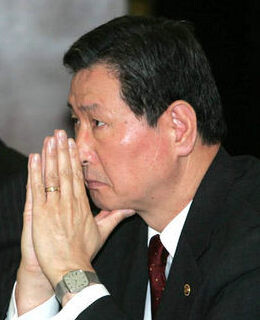hankyoreh
Links to other country sites 다른 나라 사이트 링크
Military control handover does not mean U.S. troop removal: ambassador

Lee Tae-sik, Seoul’s ambassador to Washington, said that South Korea’s taking over of wartime military control from the U.S. is a "necessary, desirable, and natural" thing to do.
In a press conference with reporters in Washington, the ambassador said that there is little disagreement between South Korea and the U.S. over the issue and added that they have completed around 90-95 percent of bilateral consultations.
"Seoul and Washington have basically little disagreement over the issue and it would be wrong to link the issue to a breakup of the bilateral alliance or a withdrawal of U.S. troops stationed in South Korea," Lee told reporters.
As for the detailed timetable for the recovery of the command, Lee reiterated the U.S. proposal of 2009, saying that the date takes into consideration various factors related to regional stability and preparatory work that has been done.
However, South Korea’s Defense Ministry has maintained that it hopes to retake the control by 2012 instead.
"South Korea’s stance is that we can delay the timetable for a more perfect preparation," Lee said. "Basically there is no difference."
Detailed decisions on the issue will be made during the Security Consultative Meeting to be held in October this year, Lee said, adding that the deadline will be determined based on whether the two countries will be able to execute independent military operation without problems.
Lee also noted that the U.S. promised to support South Korea where the country thinks it needs improvement in running its military on its own.
The ambassador said that the U.S. will continue to keep its 25,000-strong force in South Korea, and dismissed concerns that Washington is considering limiting its military support to only air and maritime operations.
Regarding the alliance between South Korea and the U.S., Lee said that strong bilateral ties still exist, saying that the two nations have successfully dealt with issues of mutual concern.
Editorial・opinion
![[Column] Life on our Trisolaris [Column] Life on our Trisolaris](https://flexible.img.hani.co.kr/flexible/normal/500/300/imgdb/original/2024/0505/4817148682278544.jpg) [Column] Life on our Trisolaris
[Column] Life on our Trisolaris![[Editorial] Penalties for airing allegations against Korea’s first lady endanger free press [Editorial] Penalties for airing allegations against Korea’s first lady endanger free press](https://flexible.img.hani.co.kr/flexible/normal/500/300/imgdb/original/2024/0502/1817146398095106.jpg) [Editorial] Penalties for airing allegations against Korea’s first lady endanger free press
[Editorial] Penalties for airing allegations against Korea’s first lady endanger free press- [Editorial] Yoon must halt procurement of SM-3 interceptor missiles
- [Guest essay] Maybe Korea’s rapid population decline is an opportunity, not a crisis
- [Column] Can Yoon steer diplomacy with Russia, China back on track?
- [Column] Season 2 of special prosecutor probe may be coming to Korea soon
- [Column] Park Geun-hye déjà vu in Yoon Suk-yeol
- [Editorial] New weight of N. Korea’s nuclear threats makes dialogue all the more urgent
- [Guest essay] The real reason Korea’s new right wants to dub Rhee a founding father
- [Column] ‘Choson’: Is it time we start referring to N. Korea in its own terms?
Most viewed articles
- 160% of young Koreans see no need to have kids after marriage
- 2[Reporter’s notebook] In Min’s world, she’s the artist — and NewJeans is her art
- 3[Editorial] Penalties for airing allegations against Korea’s first lady endanger free press
- 4Months and months of overdue wages are pushing migrant workers in Korea into debt
- 5Presidential office warns of veto in response to opposition passing special counsel probe act
- 6Hybe-Ador dispute shines light on pervasive issues behind K-pop’s tidy facade
- 7Vietnamese war victims speak of sexual violence by S. Korean troops for the first time
- 8The BTS story that no Koreans would have believed a generation ago
- 9Inside the law for a special counsel probe over a Korean Marine’s death
- 10Japan says it’s not pressuring Naver to sell Line, but Korean insiders say otherwise